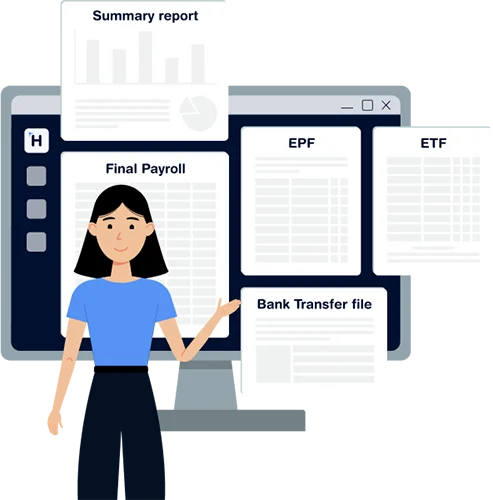Gratuity is a key employee benefit in Sri Lanka, offering a lump-sum payment to staff who have served five years or more at a company. For small and medium-sized enterprises (SMEs), managing gratuity can feel like a complicated process, especially when calculations are done manually and records are scattered across spreadsheets or old payroll files. But getting gratuity right is about more than just compliance. It also builds employee trust and demonstrates that the business values long-term contributions.
With the help of HR and payroll software, Sri Lankan SMEs can now automate gratuity calculations, improving both accuracy and transparency. This not only reduces the risk of errors but also makes the process easier for employers and clearer for employees.
The Importance of Gratuity in SME Workplaces
Gratuity plays a major role in employee retention and long-term financial planning. Many workers, particularly in manufacturing, retail, logistics, and support services, view gratuity as a safety net or reward for loyalty. It’s often one of the few formal retirement benefits available to workers in small businesses.
However, for many SMEs, the challenge lies in:
- Understanding eligibility rules (e.g., completing five years of continuous service)
- Tracking employee start dates and service periods accurately
- Applying the correct formula and salary components in each case
- Avoiding disputes when an employee exits
Manually handling all of this can easily lead to mistakes, or worse, employee dissatisfaction.
Automating Gratuity: What It Means for SMEs
An HRIS (Human Resource Information System) or payroll software that includes gratuity tracking and automation can take over much of the complexity involved in the process.
Accurate, Real-Time Calculations
As employees continue their service, the system automatically updates their gratuity entitlement based on the legally required formula (basic salary × ½ month × number of years of service). This ensures that the company always has the correct up-to-date value on hand without having to calculate it from scratch when an employee leaves.
Transparency for Employees
Some HR systems allow employees to view their accrued gratuity balance through a self-service portal. This visibility reinforces transparency and builds confidence in the company’s processes. It also serves as a motivator for staff to continue their service and reach the five-year milestone.
Reduced Errors and Disputes
Manual calculations are prone to errors, especially when different salary components are used across teams or if service dates are entered incorrectly. A digital system that draws directly from your employee database, attendance records, and payroll ensures the data used is accurate. This helps avoid disputes when an employee resigns or retires.
Faster Processing During Offboarding
When an employee leaves the company after completing five years, the HR or finance team doesn’t have to scramble to locate files, calculate eligibility, or verify payroll records. The system has already done the work, making it easier to process the payment on time and with full documentation.
Ensuring Compliance with Local Regulations
Sri Lankan employment laws clearly outline the entitlement criteria and calculation method for gratuity. By using updated HR and payroll software, SMEs ensure they are aligned with these legal requirements. Some systems also issue gratuity statements and provide audit-friendly reports, helping businesses stay compliant and ready for any regulatory checks.
Building Long-Term Employee Trust
Beyond the numbers, automating gratuity shows your team that you care about their future. It gives them peace of mind that their service will be recognized and compensated properly. In today’s competitive hiring environment, where employees compare benefits across workplaces, this can give SMEs an edge in attracting and retaining talent.
Modernize Gratuity for a Stronger SME Workplace
Gratuity is more than just a statutory payout, it’s a symbol of appreciation and a foundation for employee trust. For Sri Lankan SMEs, automating gratuity calculations through an HRIS or payroll system helps ensure legal compliance, simplifies administration, and creates a more professional and trustworthy experience for employees. Investing in such tools is a small step with a big impact on how your business supports its people.



